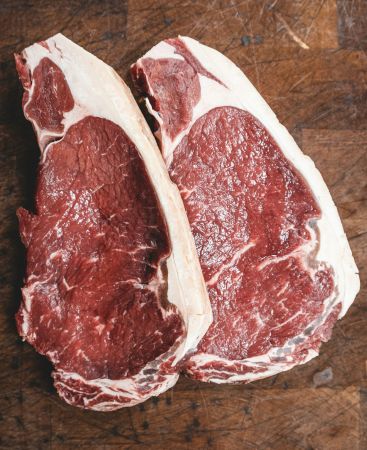The Meaning of Meat
Understanding how culture, trust, and storytelling are key to shaping consumer perspectives about alternative meat products.

As sustainable meat alternatives continue to emerge, two new studies from the EIT Food Consumer Observatory reveal that success will depend not just on innovation, but on how well these products align with the deeply ingrained cultural significance of meat in Europe. The reports uncover that consumers often feel a gap between what they look for and what they actually experience when considering meat alternatives, resulting in a sense of disconnection that hinders broader acceptance and adoption. This underscores the importance of storytelling, transparency, and emotional resonance in overcoming consumer hesitation around plant-based and cultivated meat products.
More than Meat: Unpacking Cultural Perceptions of Meat and Sustainable Alternatives in Europe
The More than Meat study is the first of its kind, exploring the symbolic and emotional role meat plays across 17 European countries. It finds that beyond nutrition, meat is tied to tradition, identity, and community. This cultural weight can create a barrier when consumers are presented with alternatives that seem artificial or unnatural.
To gain traction, the report recommends that brands should market alternative meat products by emphasising their inherent strengths, whether that is wholesomeness, healthiness, or taste, rather than positioning them as a compromise.
Messaging that leans too heavily on activism or high-tech innovation also risks alienating mainstream audiences. Instead, successful communication should be inclusive, relatable, and emotionally grounded, connecting with the values and experiences people already hold around food.
“Understanding the role of culture in the perception of meat across Europe is not just insightful — it’s essential. Dietary choices are deeply embedded in tradition, identity, and social norms, which vary widely between regions. If we want sustainable meat alternatives to resonate with diverse European consumers, we must first grasp what meat means to them. Effective positioning and communication around alternatives requires more than environmental arguments. It must speak to values, habits, and emotions tied to food. By grounding innovation in a cultural context, we can support a shift that is not only sustainable, but accepted and embraced by consumers across Europe.” Klaus G. Grunert, Professor of Marketing at Aarhus University and Lead of the Consumer Observatory.
Reimagining Protein: Consumer Perceptions of Cultivated Meat
The second study, Reimagining Protein, focuses on cultivated meat: real meat grown from animal cells in lab environments. Although not yet available in European markets, cultivated meat is seen as a potentially transformative innovation. However, many consumers still view it as unnatural or unnecessary, especially when compared to conventional meat, which is seen as familiar and unproblematic.
The report highlights that consumer trust in the benefits of cultivated meat must be built, whilst simultaneously increasing awareness of the costs of traditional meat production. Crucially, success will depend on framing cultivated meat as a mindful, human-centred innovation, and by aligning with values like transparency and ethics. When framed in this way, cultivated meat can be seen as a natural evolution in how we consume meat, that doesn’t compromise on taste, texture, or tradition.
“To successfully introduce cultivated meat into European markets, manufacturers must first understand how consumers perceive it — what excites them, what concerns them, and what values guide their food choices. Cultivated meat challenges traditional ideas of food and nature, and reactions can vary widely across cultures and demographics. Without this insight, even the most sustainable or innovative products risk rejection. Effective positioning must be rooted in empathy and evidence, responding to consumer beliefs, not just scientific facts. By aligning communication and marketing strategies with real consumer perceptions, we can build trust, foster acceptance, and pave the way for a more sustainable food future.” Sofia Kuhn, Director of Public Insights and Engagement at EIT Food.
About the reports
Both reports — “More than Meat: Unpacking Cultural Perceptions of Meat and Sustainable Alternatives in Europe” and “Reimagining Protein: Consumer Perceptions of Cultivated Meat” — are available here:
For all media requests including access to the full reports, please contact: consumerobservatory-eitfood@greenhouse.agency
About EIT Food Consumer Observatory
Powered by EIT food, Consumer Observatory brings together research and consumer insight organisations to produce bespoke research and unique insights from the agrifood community. Its goal is to maximize the impact of consumer insights on agrifood topics, providing greater knowledge and guidance to stakeholders, educators, policymakers, and businesses, ultimately driving informed, consumer-focused change in the agrifood system.
Find out more about the Consumer Observatory.
EIT Food is the world’s largest and most dynamic food innovation community. It accelerates innovation to build a future-fit food system that produces healthy and sustainable food for all.
Supported by the European Institute of Innovation and Technology (EIT), a body of the European Union, EIT Food invests in projects, organisations and individuals with shared goals for a healthy and sustainable food system. EIT Food unlocks innovation potential in businesses and universities, creating and scaling agrifood startups to bring new technologies and products to market. Equipping entrepreneurs and professionals with the skills needed to transform the food system, EIT Food puts consumers at the heart of its work, helping build trust by reconnecting consumers to the origins of their food.
We can help you to optimise your product or service, by offering real feedback from real consumers. Find out more here.
We believe that understanding consumers is key to making the food system more sustainable. Successful innovation and impactful communication require a solid foundation of consumer insight.
We are the insights partner of choice for food companies and non-profits that aim to have a positive impact on society and our planet. Together we empower consumers to make food choices that are good for them as well as for the planet.
The Hague Tech - Waldorpstraat 5 - 2521CA - The Hague
(+31) (0)70 2042314 - Info@futureoffood.institute
Contact
Fill in this form and we'll be in touch shortly!
Newsletter
Do you want to receive a monthly dose of insights, opinions and events? Please subscribe to our newsletter.










